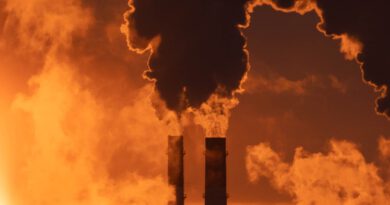Ramaphosa imposes curfew, bans booze sales again
President Cyril Ramaphosa. Image: GCIS
President Cyril Ramaphosa read the riot act to those violating rules aimed at curbing the spread of the coronavirus and announced new measures, including reintroducing a ban on alcohol sales, to enforce them as the disease nears a peak.
Many South Africans are failing to wear face masks in crowded spaces, attending large gatherings and having “drinking sprees”, ignoring government regulations, Ramaphosa said on Sunday in a televised address.
“It is concerning that many are downplaying the seriousness of this virus,” he said. “We are in the midst of a deadly pandemic and we must act accordingly. We must all be responsible. The truth is we are not helpless in the face of this storm.”
The blanket ban on alcohol sales is intended to reduce trauma cases and ease pressure on hospitals. He also reinstated a nighttime curfew and said the wearing of face masks will be strictly enforced.
Coronavirus infections in South Africa have surged since lockdown restrictions were eased last month to allow millions of people to return to work, with 276 242 cases and 4 079 deaths confirmed by Sunday, a quarter of them in the past week. The government expects the disease to peak by the end of September and intensive-care units in all nine provinces to run out of beds.
Tremendous pressure
Hospitals in some provinces hardest hit by the pandemic are already under tremendous pressure, and it is estimated that the country faces a shortage of more than 12 000 heath-care personnel, Ramaphosa said.
South Africa’s first coronavirus case was reported on 5 March and the country went into lockdown 22 days later, with only essential services allowed to keep operating. While the rules were eased on 1 May to allow some industries to reopen, people were ordered to remain home at night.
The curfew was abolished on 1 June and sales of alcohol for home consumption were allowed to resume four days a week. The easing, which also saw millions more people return to work, coincided with a surge in alcohol-related crime and traffic accidents. — Reported by Mike Cohen, (c) 2020 Bloomberg LP
Source: techcentral.co.za



